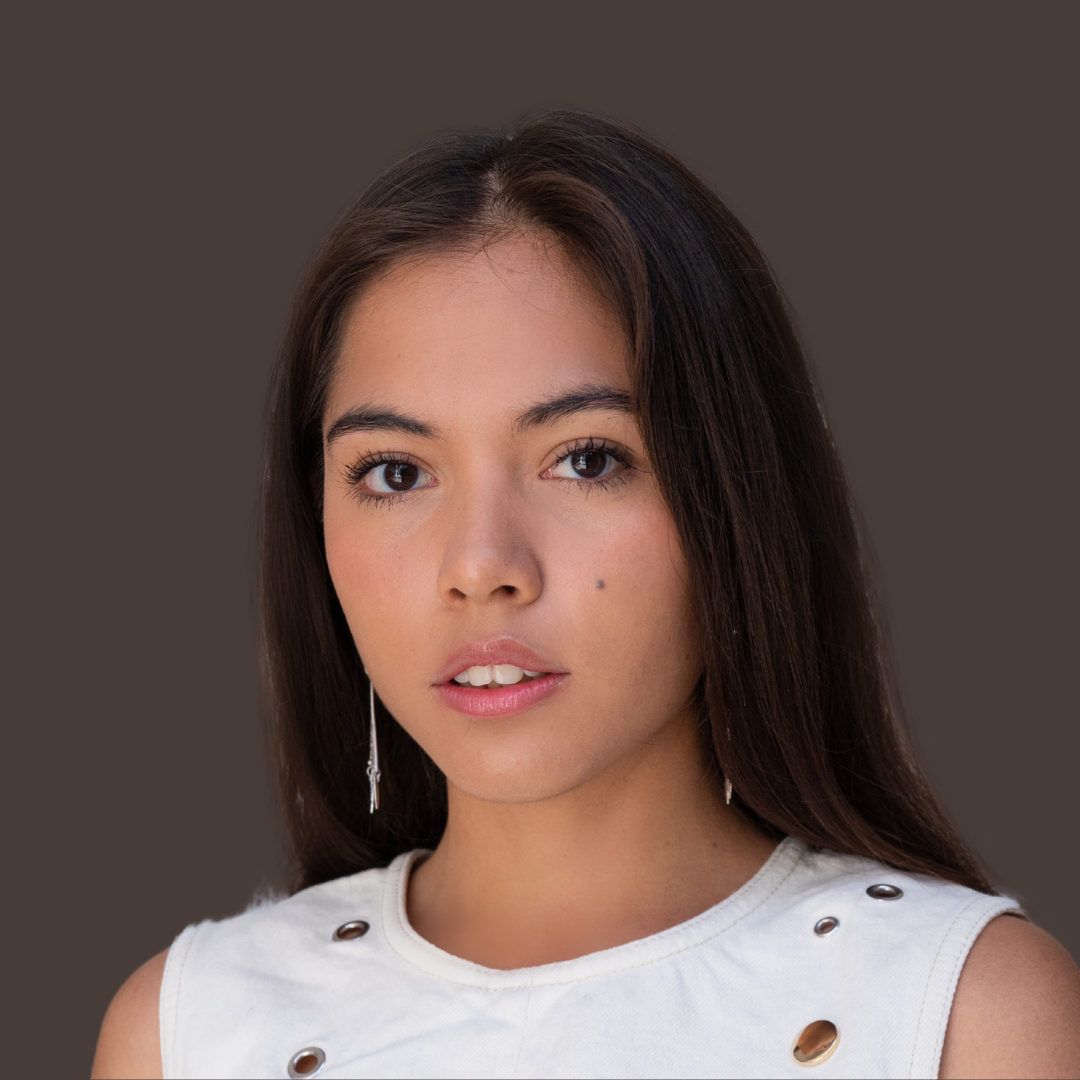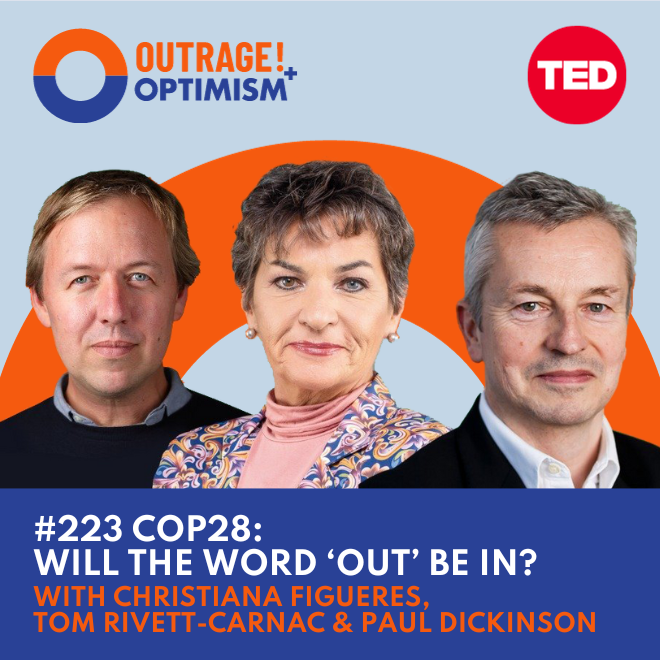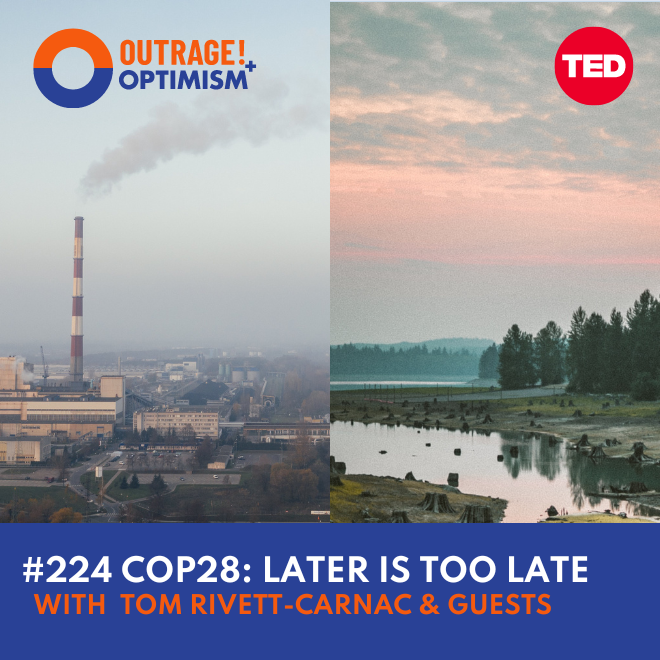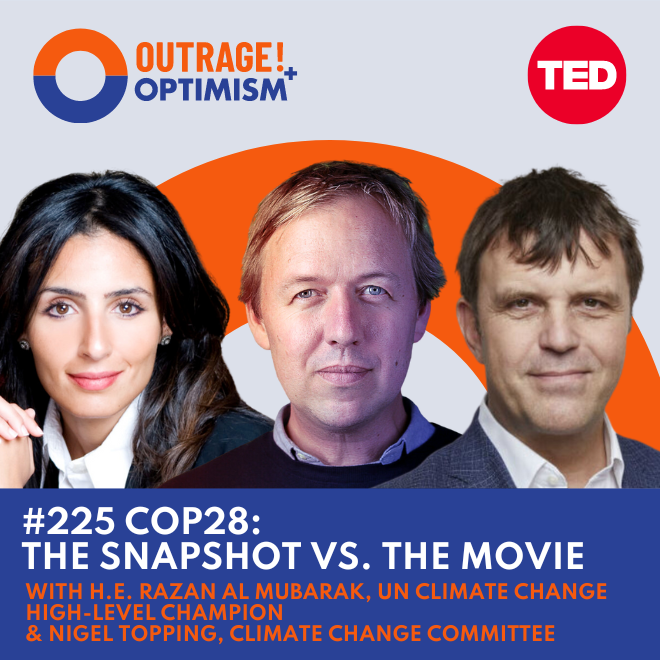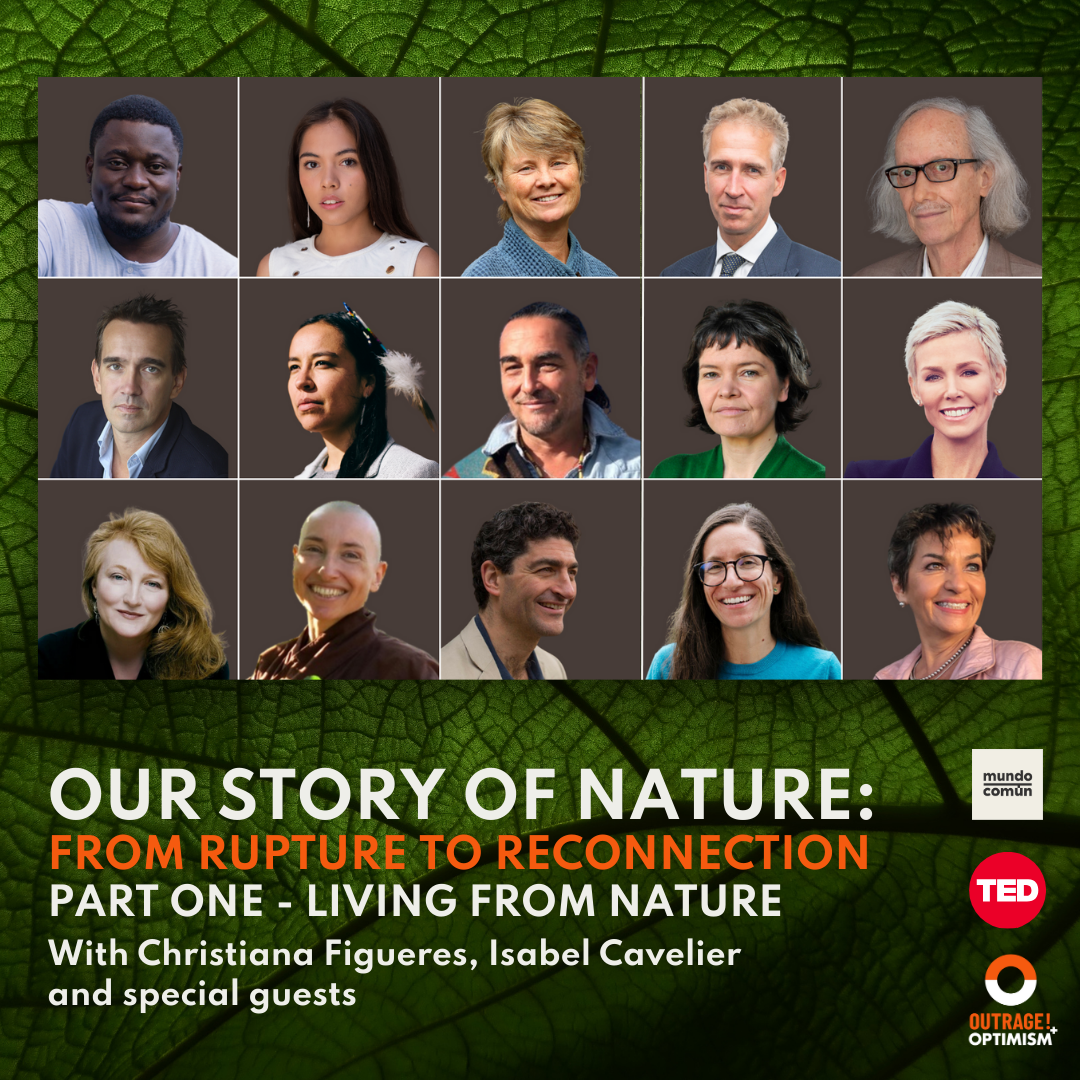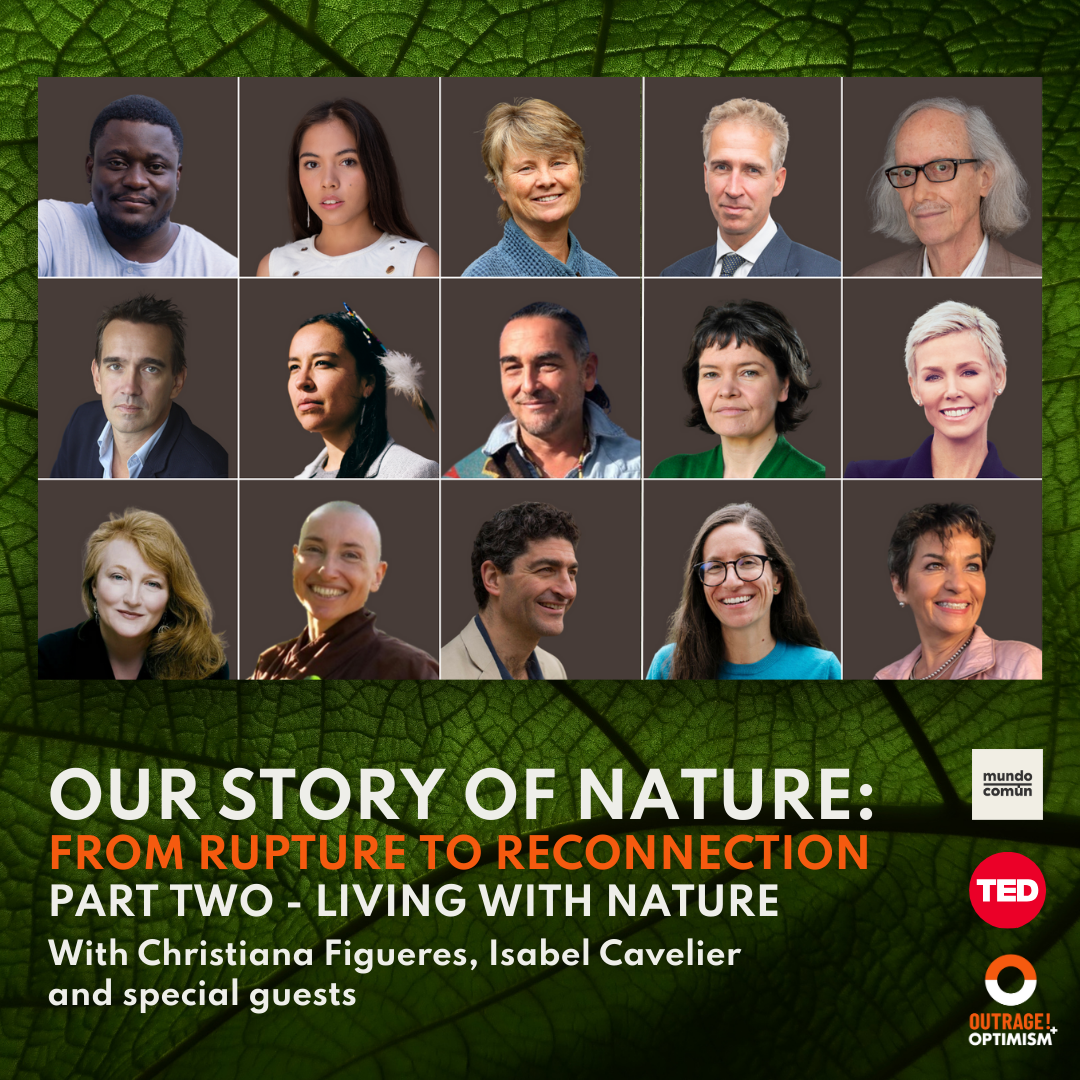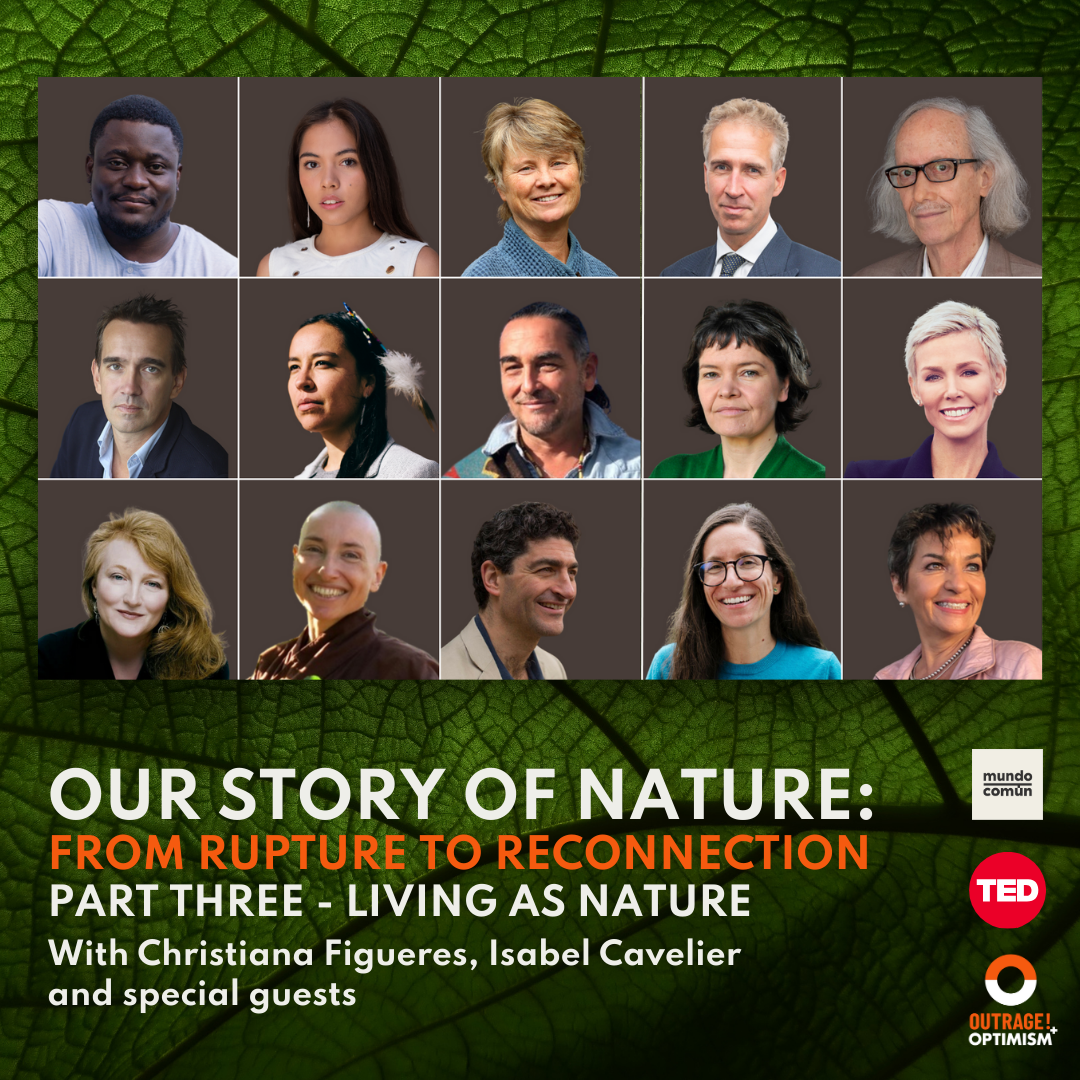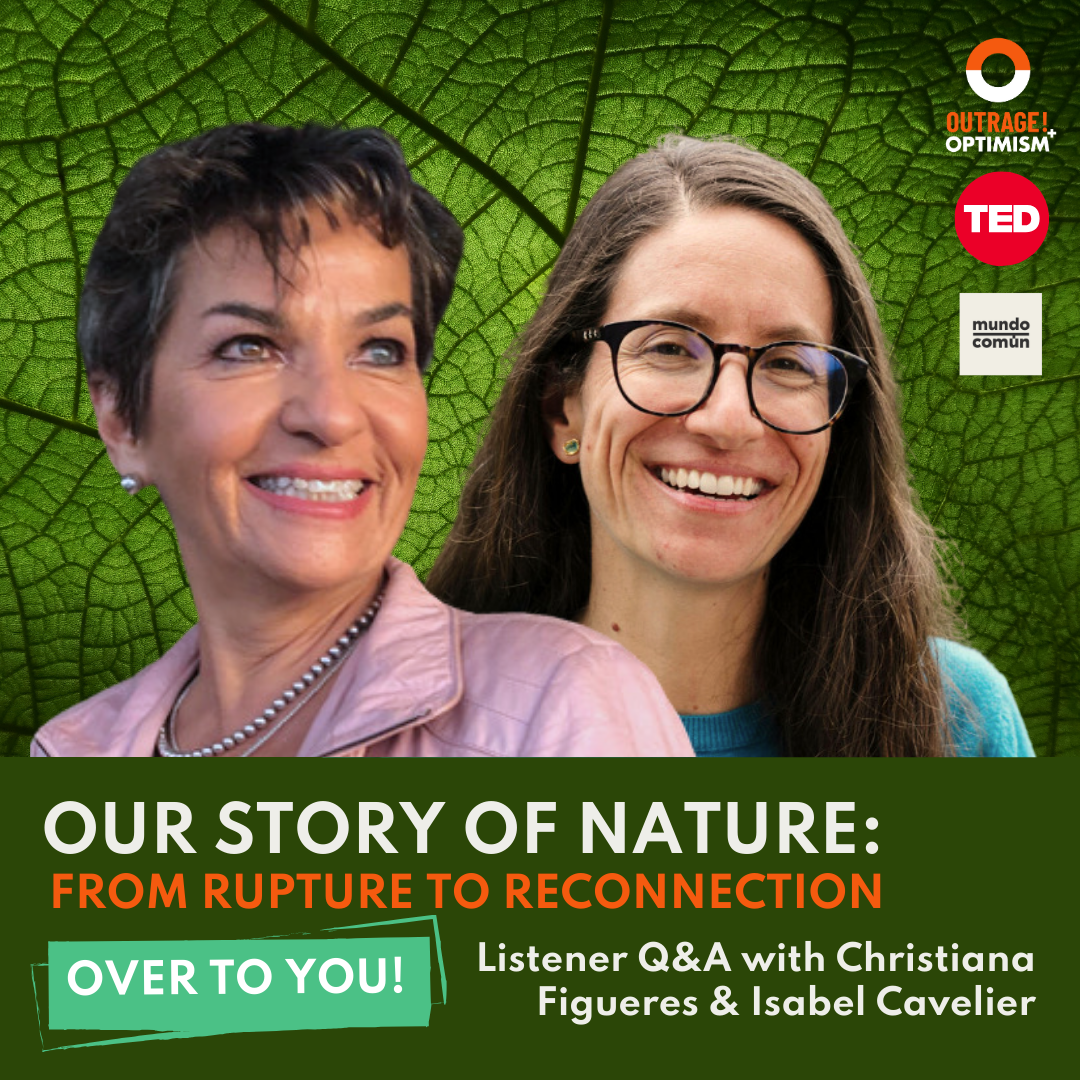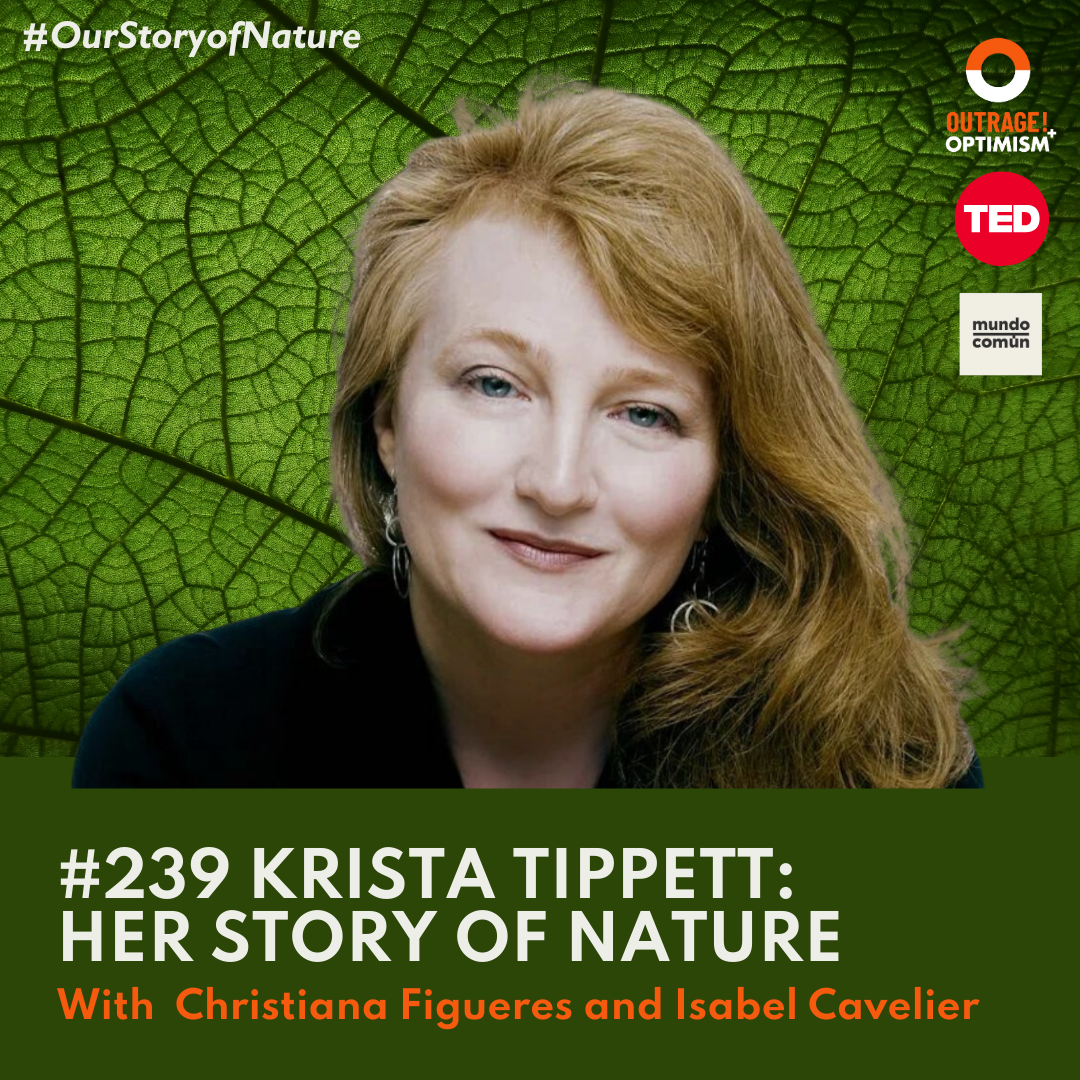242: Xiye Bastida: Her Story Of Nature (Earth Day Special)
About this episode
To mark Earth Day, Christiana shares her conversation with the incredible young climate justice activist, indigenous rights advocate and author Xiye Bastida.
From the Otomi-Toltec indigenous community in Central Mexico, Xiye’s life and work demonstrate how indigenous wisdom and principles unearth solutions to the climate crisis. She is driven to create a climate movement that is more inclusive and more diverse.
Since 2019, Xiye has been actively involved in organising climate strikes with Fridays For Future, including for their largest youth-led march in New York City. In her role as Co-founder and Executive Director of Re-Earth Initiative, Xiye supports frontline youth across 27 countries, whilst also studying for an Environmental Studies degree with a concentration in Policy and a Minor in Latin American Studies at the University of Pennsylvania. Recently listed in TIME100 Next as a phenomenon (we agree!), she holds the UN Spirit Award.
This episode is the full, unedited version of a conversation recorded for the recent mini series Our Story of Nature - From Rupture to Reconnection, co-hosted by Christiana Figueres and Isabel Cavelier. This is a wonderful and moving insight into Xiye’s story of nature, on how to slow down, and how we might keep past and future generations in our minds - and hearts. We hope you enjoy it!
Background on Earth Day:
The first Earth Day was on April 22nd 1970. Across America, twenty million people took to the streets to protest against environmental destruction. Many people were motivated by the devastating impacts of a recent oil spill in California, others campaigned to reduce air pollution. The spirit, scale and power of the protests were inspired by student anti-Vietnam marches.
Denis Hayes, who coordinated the original Earth Day, remembers how the day unified diverset groups: "By the time it finally came around, it was in virtually every town, every village, in the United States. It took this basket of issues that we now call 'the environment' and elevated them spectacularly in the public consciousness."
Earth Day 1970 is described as the dawn of the modern environmental movement. Events that day resulted in political changes: landmark environmental laws were later passed in the United States - the Clean Air and Water Acts - and the Environmental Protection Agency was created. Many other countries subsequently adopted similar laws. In 2016, the United Nations chose Earth Day as the day to sign the Paris Climate Agreement into force.
Earth Day is now the biggest civic event in the world, with billions of people participating in events to highlight the urgent need to protect our planet. Its theme this year is Planet vs. Plastics - calling for widespread awareness on the health risk of plastics, for an end to single use plastics, and for a robust UN Treaty on Plastic Pollution.
NOTES AND RESOURCES
More on Xiye Bastida, Co-founder and Director of Re-Earth Initiative
More on Earth Day
Links to Our Story of Nature episodes:
Our Story of Nature - From Rupture to Reconnection - Episode 1
Our Story of Nature - From Rupture to Reconnection - Episode 2
Our Story of Nature - From Rupture to Reconnection - Episode 3
Our Story of Nature Intro Music - Catalina by Tru Genesis
Other full, unedited interviews from the mini-series can be found HERE
Learn more about the Paris Agreement.
It’s official, we’re a TED Audio Collective Podcast - Proof!
Check out more podcasts from The TED Audio Collective
Please follow us on social media!
Twitter | Instagram | LinkedIn
Full Transcript
Transcript generated by AI. While we aim for accuracy, errors may still occur. Please refer to the episode’s audio for the definitive version
Christiana: [00:00:12] Hello, friends. Christiana here with a special Earth Day episode for you. As I'm sure you all know, Earth Day has been celebrated every year on April 22nd since its inception in 1970. On that very first Earth Day, 20 million people took to the streets across the United States to protest against environmental destruction and to demonstrate to political leaders how broad and how deep their support for the environment was. That movement was huge and unprecedented in both its scale and the way that it brought so many disparate groups together. Denis Hayes, who was one of the organizers of the original Earth Day, says by the time it finally came around, it was in virtually every town, every village in the United States. It took this basket of issues that we now call the environment and elevated them spectacularly in the public consciousness. So Earth Day 1970 has been credited as the dawn of the modern environmental movement. It was for sure instrumental in getting new legislation passed in the US Congress, including the Clean Air Act, the Clean Water Act, and in creating actually, the very Environmental Protection Agency itself. So there you go. That is the power of a movement. Now, since then, Earth Day has snowballed outside of the United States into a global phenomenon. Thousands, if not millions of us will take part in many, many different types of events today to spur climate action and to mobilize others to protect our beautiful planet. So today, we we would like to celebrate Earth Day with a conversation with the incredibly inspiring young climate justice activist. She's an author. She's an indigenous rights advocate. She has led and mobilized young people across the world. And her name is Xiye Bastida. Load More
Isabel Cavelier: [00:05:21] So Xiye welcome. It's such an honour to have the opportunity to share with you, to feel with you, to think with you, and to talk with you here today. And we would like to start, to ask you to introduce yourself in your own voice.
Xiye Bastida: [00:05:41] Hello. My name is Xiye Bastida. I'm a climate justice activist, and I'm from Mexico, from a community called San Pedro Tultepec, and I come from the Otomi-Toltec indigenous community, and we speak the Otomi language and something that I always like to share about one of the most important moments of understanding of our relationship with ourselves and nature was knowing the word for skin and the word for outer layer of the earth, which is almost the same word in my language. And so the relationship runs so deep in how if you hurt Mother Earth, whatever you do to Mother Earth, you are doing it to yourself. If you nourish Mother Earth, you're also nourishing yourself. If you nourish yourself, you're nourishing the earth. And the beginning of of the words is always xiye or xiya, which connects to range, means, xiye means soft rain. So when the rain falls, it's actually connecting our bodies with the body of the earth. And for me, that is the most beautiful depiction of interconnection of how we are one with nature. And we need to remember our position on this planet as such.
Christiana: [00:07:04] Xiye, do you do you have the sense that that wisdom which is so innate in you and so much a part of your ancestry and the legacy that you have received and are giving on to future generations, do you have the sense that we are slowly awakening to the understanding of that relationship in other cultures, beyond the much wiser indigenous cultures?
Xiye Bastida: [00:07:40] Yes, I can feel it. I can feel the world turning back to connection, especially in this period of transformation in the Mesoamerican calendars. It was understood even globally that there was an end of a cycle. You know, people thought that the world was going to end, but it was just the end of a calendar in 2012. But the correct date is actually, May 3rd, 2013, and the new calendar is going to start in 2026. So this 13 years of right now is a period of transformation for all of the beings of the earth and humanity. And I can see so clearly that the knowledge a lot of indigenous communities consider ourselves knowledge keepers. We're not only keeping knowledge for ourselves and our descendants, but for the world. And so it's kind of waiting to be ready that the West is is open to receiving that knowledge. And we always say we don't want you to necessarily do ceremony like us. We don't want you to dress like us, to eat like us. We want you to think like us. We want you to feel like us.
Xiye Bastida: [00:08:52] We want you to understand, like us. And even, you know, Western science has taken all of these years to be able to communicate how nature is all interconnected with us. So now we have the planetary boundaries framework. We understand that everything is interconnected scientifically, but indigenous peoples had that in our DNA, in our in our memory. And so I do feel that two worlds are coming back together. And it's because one was very disconnected. And humanity has understood that disconnection doesn't work because it creates a lot of violence, it creates a lot of pain and it creates uncertainty. In indigenous communities we had been living in cycles of certainty. We knew what was coming. We knew when our harvesting was going to be. We knew when the rain was going to come. And living in certainty is so powerful, because then you can be sure of what you're handing down to future generations. But now we don't know. And I think humanity as a whole wants to go back to certainty and back to security. And that can only come from honouring ancestral knowledge.
Christiana: [00:10:11] Xiye the pandemic that we are sort of in the long tail of, caused a lot of pain and suffering to millions of people. Having said that, in your estimation, did it also help to disrupt a little bit the ignorance of our relationship with the other parts of nature? Did it, did it bring us any closer? Were there any positive learnings from that?
Xiye Bastida: [00:10:47] Yeah, I think the biggest thing that the pandemic did for everybody was slow down the world. And in a way, our economic system is about how fast you can do things. How efficient can things be, how fast you can make profit, how fast you can, you know, it's all about every single commodity that we have. It's like, how fast can you wash your clothes, how fast can you heat up your food, how fast. And so we've given up on time. On things taking time, like why do we have a microwave, and it takes all of these metals to to make, and it takes so much work to transport it and distribute it so we can heat up our food in 30s instead of ten minutes. And so we have given up on letting things take their time and nature takes her time. Always. A tree cannot grow faster than what a tree is supposed to grow. And you know, like the the currents are not going to go faster than what they're supposed to go, except when we come and disrupt that cycle because we want things to go faster. And so we create pesticides and we create all of these things. And for what. We're just disrupting. So I think the pandemic was kind of a wake up call in terms of slowing down. And my mom had always told me, what you need to do Xiye is to ask people to slow down. And I thought, mom, that's never going to work out because people get upset even if you walk slow down the street.
Christiana: [00:12:18] Yes.
Xiye Bastida: [00:12:19] But you know, then I realized that is the key. And you cannot ask the world to slow down unless you slow down yourself first. And you understand what it's like to live more intentionally and take time to breathe and take time to think and take time to, you know, be, be present. And that is a lot of what we're missing. But I do think your question was gearing more towards our understanding of nature, which was also like, why did the pandemic happen. Because we were disrespecting nature's cycle so much. And we were, you know, like all of these pandemics are going to be more and more common because of the climate crisis and because of where we're sourcing our food, and because we are not being mindful of how things should be. And an indigenous community that has been eating an animal or hunting an animal and has rituals for that is going to know how to do it, rather than commercially scaling the consumption of, you know, all of these very, very specific beings. And so I think the pandemic showed us, you know, nature bounces back so quickly and it was caused by us not respecting nature. So we have to give nature time to heal, ourselves time to heal, and as a whole slow down a bit more.
Isabel Cavelier: [00:13:42] Xiye you've spoken about your mum, and in general you've spoken about your, your legacy, going through your lineage, a few times. Can you tell us a little bit more about your relationship with your lineage of ancestors, but also your lineage going through you into what we call the future. How is that relationship defining your identity and what you bring to the world?
Xiye Bastida: [00:14:16] I love that question so much because every time I get asked about my ancestors and the future, I feel a strong sense of responsibility for the knowledge accumulated, but also the knowledge that is going to be passed down. So you feel that you yourself have to be a channel, always a channel, a channel for the knowledge of the past and a channel for the hopes of the future. And in indigenous communities, we have across the world the notion of the seven generation principle, which I speak often about. And it's every decision that we take informed by the wisdom of seven generations past. What does that mean. Seven generations of wisdom and for the caring of the future seven generations. But I always like to also add that seven generations is not that long. Seven generations is actually a super short time when you yourself can be in the middle of seven generations. So you can have myself, for example, my mother, great grandmother, great grandmother, daughter, granddaughter, great granddaughter. In my lifetime, I have already met this half of my seven generations, and I hope to be able to meet the future half of my seven generations that we're all in the middle of. And I think that's an understanding of how we have to be mindful that things have to be able to be long lasting, but also time is fleeting. So let's do what we must now.
Christiana: [00:15:55] How how does that, how does that impact us? Do what we must now in the in the understanding that what we feel, our feelings, our thoughts and our actions are all basically part of the same loop. How does that impact the world that we're living in, how does it impact the world we want to create, and how does it impact the system at large, which is ultimately what we want to mold to be a fairer, happier, healthier future?
Xiye Bastida: [00:16:46] I think first, we have to understand that every single thing that exists today started from a thought. And once you know that that once you know that all the buildings and all the highways and all of the cars were a thought, then you have this feeling that I can also think better things, and I can imagine better things, and those things can become a reality. And so we have the power to shape our future every single time we think and we feel. So that is a, then a duty of us to think beautifully and to feel beautifully and to imagine beautiful things, because then those are the things that are going to be created. So I love that you put it like that, Christiana, because it is so easy in the climate movement to fuel our fight from resentment, to fuel our fight from rage, to fuel our fight from, you know, a feeling of disappointment for what the world is today, especially for younger generations. But I know that that cannot fuel my fight, because then that's the world I'm going to create, one that has those characteristics of my thoughts. So I choose to be optimistic. And ever since I first met you, I think four years ago, and you talked about stubborn optimism, I haven't let that go. And it has informed every single step of my activism that I need to be optimistic, because only then will the world be what I want it to be, which is safe for my children, free of violence, connected with nature. And so my homework for myself every day is to think and walk in the best way that I can so that I can head to that future that I'm proud of for my kids and my my lineage.
Isabel Cavelier: [00:18:50] Xiye, you got us both crying now.
Christiana: [00:18:52] Xiye.
Isabel Cavelier: [00:18:54] Xiye you've spoke so beautifully, maybe consciously, maybe intuitively, probably both. When you spoke about your ancestry and your lineage, you spoke about your female ancestors and also your female descendants. And it would be beautiful to hear your feeling about that, the reason or the seed of origin for you to to have done that specifically.
Xiye Bastida: [00:19:25] I think what is missing from the way that we've created the world is the feminine energy, because it has been sidelined in the way that our modern society has been built, intentionally sidelined, intentionally always put, you know, like, and characterized as inferior. And I think indigenous creation stories always talk about the masculine and the feminine working in harmony and nature is about working in harmony. And we're not saying, you know, it's like women are gonna do everything and save the world, but maybe yes, because men and the negative masculine energy of, because not all masculine energy is negative, but the one that is rooted in extraction and creating of of conflict that is negative. And so the feminine energy has to come in and say, we're going to rebuild, we're going to care, we're going to honor, we're going to feel, we're going to be vulnerable. And all of those things are positive. Being vulnerable is positive, and only vulnerability creates trust. And we need to trust each other. We need to trust that we're all doing things for the right reasons, which is not the case at the moment. And so the feminine energy is going to come in to disrupt the way that the world is today, because we're not going to let a world be built that is going to harm our children. And I think Mother Nature feels that also. So when I refer to my lineage as feminine it's because we all have the seeds of the future and we are a seed ourselves, and humanity can only come from those seeds. And Mother Earth gives birth every second, every single day, every time. And that is a power, the power to create, the power to nurture. And we need to, you know, ask all of humanity, not just women, fit into that power of creation and nurturing and regeneration. And that's the gap. That's the that's the one of the main gaps in in our world.
Isabel Cavelier: [00:21:42] That's beautiful Xiye, and we're in a, in just a minute, we're going to, invite you to read your beautiful post. But before that I have one more question for you. And it's about day to day life, day to day life, let's call it in in the West or in our current modern cultures. If you're speaking to to many of us in this community who are listening to us today, I think we're all seeking ways to reconnect. And even using the word reconnect is a bit strange because it's it presupposes that there is a difference between me and something else out there, as if nature was outside and I was something that needs to reconnect with something else. But for the sake of the of the, let's say, the question and the conversation, we can speak about how, how, how to reconnect. And you've spoken very beautifully also about that capacity to do that in a, in a daily basis, wherever you are. How would you say that we can nurture that capacity? Not necessarily just, being in a particularly beautiful natural territory or landscape, but also in the middle of Times Square. You were talking about that too. So how do you do that in a, in a in a in a daily life in the middle of the West?
Xiye Bastida: [00:23:07] Yeah, I love that question because reconnection and connection is an act, you have to be an active participant if you want to connect with nature, you cannot just expect it to happen. And it comes from seeing, not just being in certain spaces. It comes from using all of your senses and that is being present, right. And being grounded. So it's every time you breathe, it's like one breath comes from the ocean, the other one comes from the Amazon, the other one comes from the Congo rainforest. Whenever you, you know, hear a bird, even if it's a pigeon, you know, pigeons were domesticated. And that's why they love being in cities, because they we may we may have a relationship with them. It's generations ago. And that's why they love being around humans because they were domesticated. And now we've kind of let them go from that relationship that we have built with them. So even then, you know, I used to be annoyed by them, and now I'm like, we owe them kind of to say sorry for just leaving you after making us, making you trust us. And everywhere I go, I understand that I'm on Mother Earth with Mother Earth walking with that intention. So I do think that connecting with nature is not only about being in touch with all of your senses and seeing how nature is all around you, but also feeling that you are worth of connection with nature is different, which I didn't understand as an indigenous person, how other people, whenever they came to ceremony, etc. they would say, but do I have the right to do a ceremony? Do I have the right to pray to nature? Can I only do it when I get permission from an indigenous person. And I started to realize that people feel that they need that permission. So I'll tell you, you have my permission to connect with nature. And a way to do that that is very actionable is giving back a craft, a prayer everywhere you go. What are you giving the land that you're on, not just land acknowledgement. What are you giving? Is it a shell from the trip that you took to the ocean. Is it a cranberry that you brought from your plain. Nourish the earth everywhere you go. Give thanks to where you are and then the earth will give back to you. So I think that's, it's something that we always do. We always give thanks. And I think as humanity, we have to all do that because we, we move all the time and that's just our nature. So let's bring gratefulness with us.
Christiana: [00:26:00] Bellissimo.
Isabel Cavelier: [00:26:01] Muy lindo. Xiye, yould you like to read, would you like to read before we finish? It would be beautiful to have that in your voice.
Xiye Bastida: [00:26:10] Yes. So the context is that I saw this picture of myself and I look very strong, but I didn't feel very strong while I was taking that picture. So it made me think of how you need to tell yourself to be strong, and you need to remind yourself who you are, and you need to remind yourself that you're connected, and sometimes your actions will do it for you, which is I'm really grateful for that, that my body will show up for me sometimes when I'm not fully there with my intentions. But then it was a reminder that I need to tell myself who I want to be, and I wanted to share that with the world. So it's kind of a poem to myself and to the world.
Xiye Bastida: [00:27:01] Think of yourself as a tree with long and strong roots that connect you with the womb of the earth. Roots that absorb groundwater enrich you every day and give you the strength to stand tall. Picture yourself with a strong trunk, a strong core and unshakable center. That is the source of your vitality, your love, your fire. You have strong and long branches that can reach anything, anywhere. With those branches you can give and receive. You can hold and hug. You can give shelter. Picture your leaves absorbing the sun growing full and green, changing with each season. Adapting, growing, falling, decaying and growing again. Picture the fruits you give, the seeds they have that will grow into strong trees that will connect with the womb of the earth and the heart of the sky. Receive the rain, the wind, the sun. Receive and give. Give your fruits, your shelter, your seeds. Be unshakable. Be adaptable. Be strong. Be loving. But most of all, be yourself. Take your space. Take your time. Respect time. Things take time. Change takes time. But change will come.
Xiye Bastida: [00:28:29] So yeah, it was it was a reminder to myself to be everything that we are, everything that we can be, what we must be, which is unshakable and strong, but also loving. And we need to give and receive. And I think a tree just does all of that all the time. And we forget, you know, it's it's like we should all learn a bit more.
Christiana: [00:28:53] Xiye, thank you so, so much. Thank you for sharing from, from from the bottom of your heart and from the depth of your brilliant mind.
Isabel Cavelier: [00:29:03] And the depth of your lineages channelling through you. It has been a true honour. Thank you.
Xiye Bastida: [00:29:11] Thank you so much for allowing me to think the way I want to think, because sometimes you think differently when you're in the fast paced environment and you forget to think what you want to think more often. So I'm so happy that I could I could be here and do that.
Isabel Cavelier: [00:29:27] Thank you, gracias.
Christiana: [00:29:28] Thank you very much.
Isabel Cavelier: [00:29:29] Gracias Xiye.
Xiye Bastida: [00:29:30] Gracias.
Christiana: [00:29:38] So there you have it. The one and only Xiye Bastida. All that's left for me is to wish you all a very happy Earth Day.
Your hosts

Christiana Figueres
 Follow Christiana Figueres on Instagram
Follow Christiana Figueres on Instagram
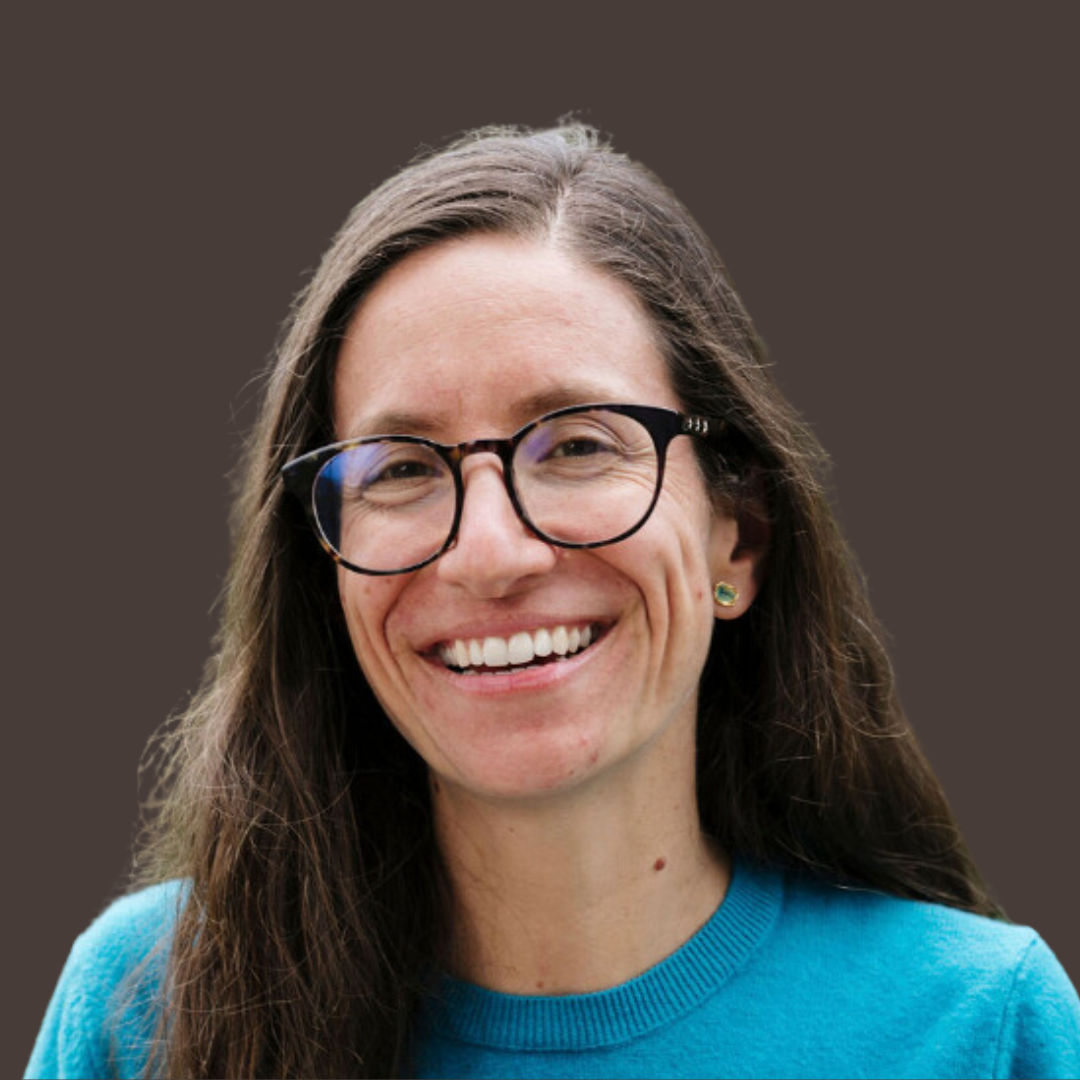
Isabel Cavelier Adarve
Guests
